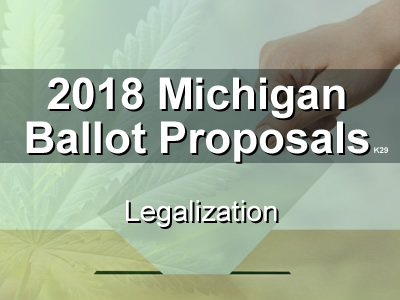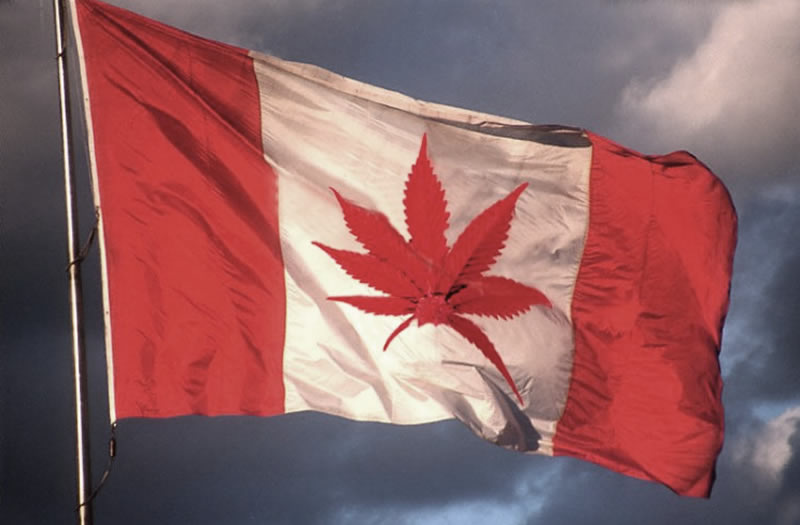
Sep 1, 2018 | News, Recent Victories, Victories Project
The proposed ballot language for marijuana legalization in the state of Michigan appears finished.
It will appear as proposal 1 on the November general ballot.
In April, the Michigan Board of State Canvassers approved a petition to legalize the recreational use of marijuana in the state of Michigan.
After the state legislature failed to take up the petition it would be put on the ballot for citizens to vote.
A proposed initiated law to authorize possession, use and cultivation of marijuana products by individuals who are at least 21 years of age and older, and commercial sales of marijuana through state-licensed retailers
This proposal would:
- Allow individuals age 21 and older to purchase, possess and use marijuana and marijuana-infused edibles, and grow up to 12 marijuana plants for personal consumption.
- Impose a 10-ounce limit for marijuana kept at residences and require that amounts over 2.5 ounces be secured in locked containers.
- Create a state licensing system for marijuana businesses including growers, processors, transporters, and retailers.
- Allow municipalities to ban or restrict marijuana businesses.
- Permit commercial sales of marijuana and marijuana-infused edibles through state-licensed retailers, subject to a new 10% tax earmarked for schools, roads, and municipalities where marijuana businesses are located.
-
More proposal detail and other Michigan proposals
About Komorn Law
Komorn Law has represented numerous clients through the legal chaos of starting up a business in the Michigan Medical Marihuana Industry.
If you or someone you know is facing charges as a result of Medical Marijuana, DUI, Drugs, Forfeiture, Criminal Enterprise, etc. Please contact our office and ensure you’re defended by an experienced lawyer in the evolving laws.
Lead attorney Michael Komorn is recognized as an expert on the Michigan Medical Marihuana Act. He is the President of the Michigan Medical Marijuana Association (MMMA), a nonprofit patient advocacy group which advocates for the rights of medical marijuana patients and their caregivers.
Contact us for a free no-obligation case evaluation
800-656-3557.
Follow Komorn Law

Jun 29, 2018 | Blog, Hemp
The US Senate passed legislation Thursday 6/28/18 by a vote of 86 – 11 that would legalize hemp as an agricultural commodity.
Senate Majority Leader Mitch McConnell…
“I have heard from many Kentucky farmers who agree it’s time to remove the federal hurdles and give our state the opportunity to seize its full potential and once again become the national leader for hemp production. That is why I strongly advocated for this measure to be included in the Farm Bill,” Senate Majority Leader Mitch McConnell said in a statement after the bill passed.
McConnell, as well as Sens. Ron Wyden (D-Ore.), Rand Paul (R-Ky.) and Jeff Merkley (D-Ore.), introduced their hemp legislation as a stand-alone bill in April, before getting it included in the Senate’s farm bill.
McConnell also stated that “for far too long, the federal government has prevented most farmers from growing hemp.”
Sen. Charles Grassley (R-IA), one of Congress’s most ardent opponents of marijuana law reform, threatened to pursue serious changes to the bill’s hemp provisions on the floor. He wanted to remove the legalization of derivatives of the cannabis plant, such as cannabidiol (CBD), which is used by many people for medical purposes. But Grassley never ended up filing a floor amendment.
Hemp legalization has broad bipartisan support
The bill would legalize hemp and remove it from the federal list of controlled substances. This would allow it to be sold as an agricultural commodity.
Read More

Jun 24, 2018 | Blog, Legalization, News
Recreational marijuana use will soon be legal in Canada after the Senate passed a “historic” bill on Tuesday 6/19/18 with a vote of 52-29.
Canada is the second country in the world to implement legislation to permit a nationwide marijuana market.
Uruguay was the first country to legalize marijuana’s production, sale and consumption in December 2013. Read the law and regulation-if you can here
In the neighboring US, nine states and the District of Columbia now allow for recreational marijuana use, and 30 allow for medical use.
The act to legalize the recreational use of marijuana was introduced on April 13, 2017, and was later passed at the House of Commons in November. The Senate passage of the bill was the final hurdle in the process.
Bill C-45, AKA…The Cannabis Act, stems from a campaign pledge of Prime Minister Justin Trudeau to keep marijuana away from underage users and reduce related crime.
Although the Canadian government had initially stated its intent to implement by July 2018, provinces and territories and who would be responsible for drafting their own rules for marijuana sales. They have advised that they would need eight to 12 weeks after the Senate approval to transition to the new framework.
The government is expected to choose a date in early or mid September.

Jun 18, 2018 | Blog, Legalization
Jeff Hank debated Matthew Yalscot of Healthy and Productive Michigan along with David Harns from LARA / BMMR about legalizing marijuana.





